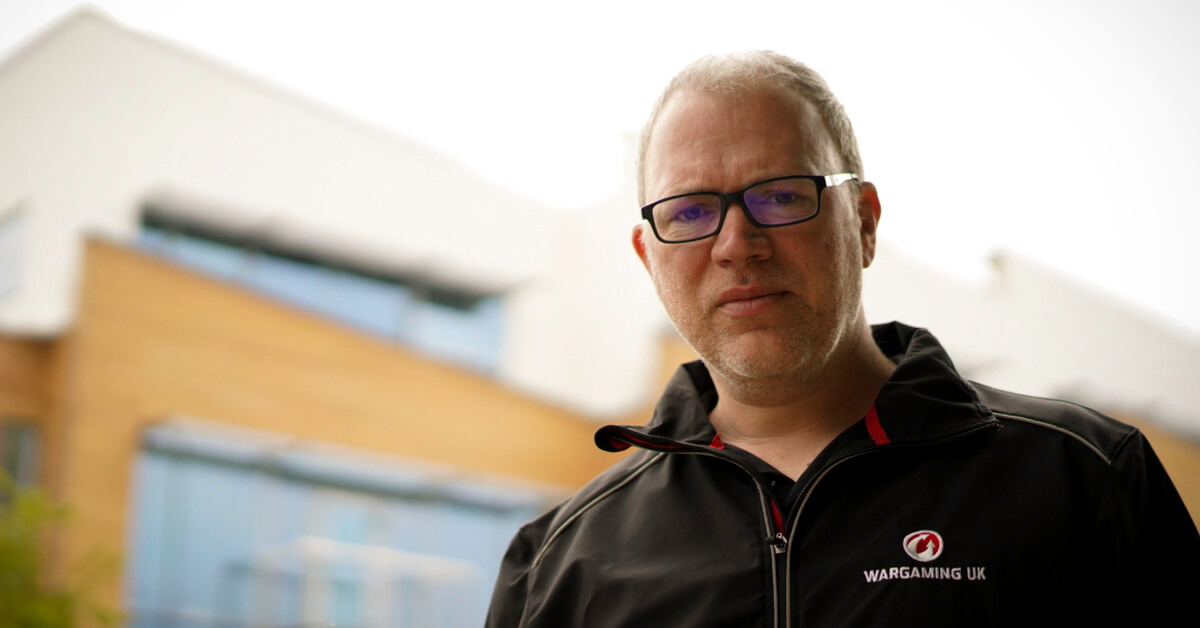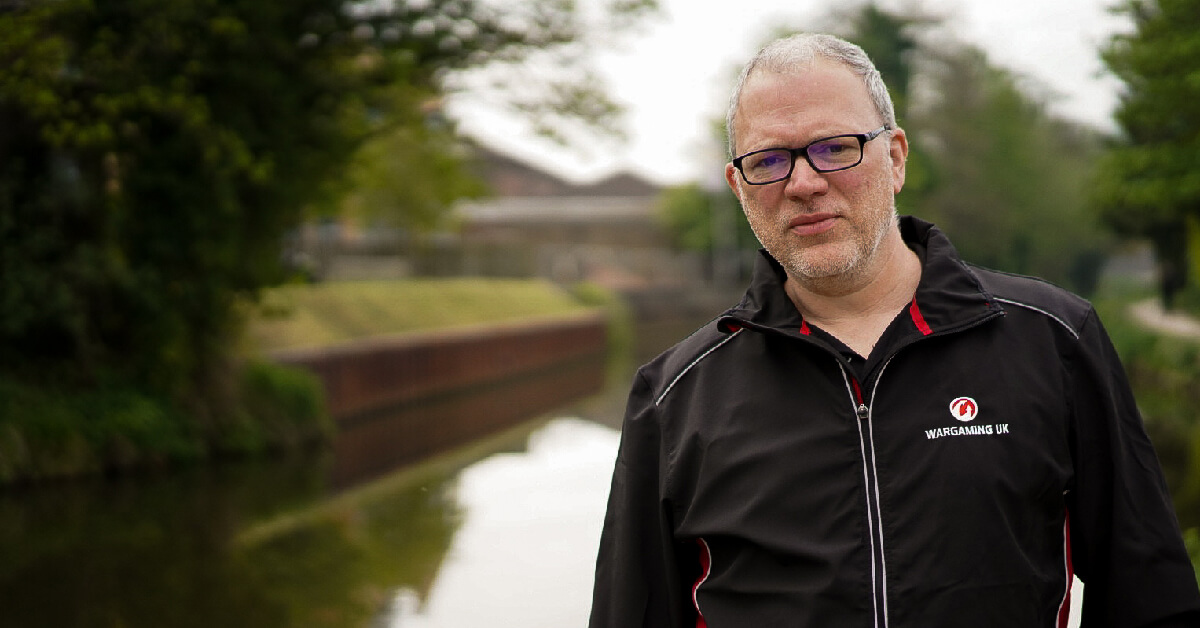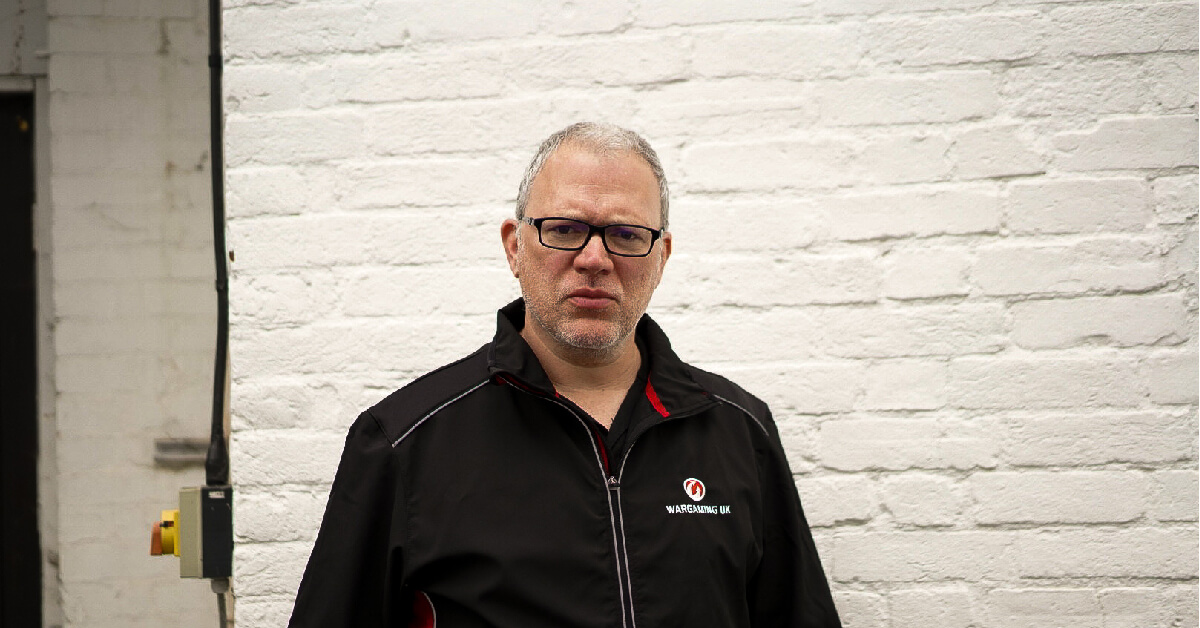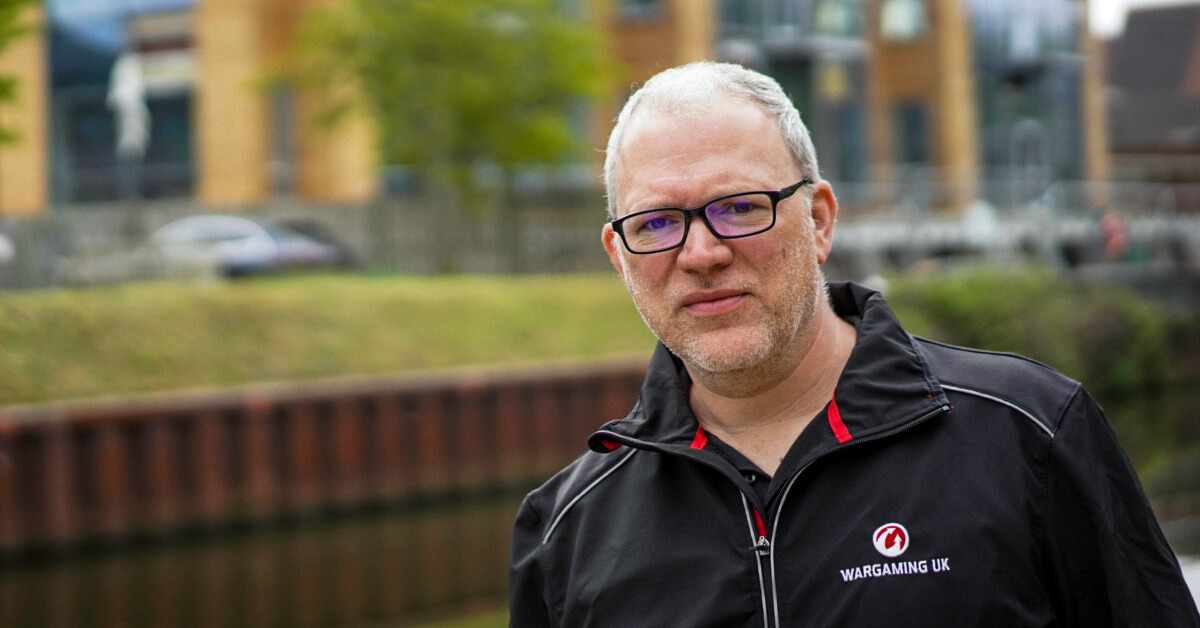From the UK music scene to AAA game development, check out Dylan’s storied journey into directing Wargaming’s new game.

Thank you for taking the time to speak with me. To start, what do you do at Wargaming?
I'm the Development Director at Wargaming UK. Currently, we are working on a new product from the ground up and are building a team to move forward with this new vision. So, my job is to effectively build the development team within UK and making sure everything goes smoothly across the different team members.
We're looking for partnerships all over the world. We're already working with other teams to build this product, and one of them is actually a small team in Wargaming Sydney. They're looking into some elements for us, like how to get a really great physics engine for the game.
Why are you looking for partnerships for the development of this new game?
Actually, the reason we're working with partners is because we are building the studio up to be prepared and ready for co-development. There are many reasons for that, but basically, we want to keep the studio small so that we can create an atmosphere where everyone knows each others' names. We're looking to create a sense of closeness here in the UK.
So what are the benefits of working with partners in co-development and keeping the core team small?
It's easier to communicate with a small group on a day-to-day basis. So if you've ever been in a video game business that has scaled rapidly, you would know that comes with a plethora of difficulties and challenges. If you set a marker for the size of your scale, make it manageable, you can formulate your plans and processes accordingly. When you go in with the mindset of: "we're not going to be a 400-person studio and set everything in motion to work with external partners ", then the mindset, in the beginning, is correct.
The complications arise in the opposite perspective. If you say we're going to make this entire product internally, and you want to launch it within the desired timeframe, with a new team of 400 people, you're setting an impossible target. That becomes a very big investment, a monumental recruitment challenge, and brings in a large level of risk for the game. Not to mention, you're asking 400 or so people to share a vision for a new game and adding the challenge of finding a space to house all those people in one place.
If you build out your business by hiring experts with incredible talent and focus on building up the entire studio philosophy around recognizing the need for external groups of talent to support that function, then you're going to be in a much better place. The way video games are made nowadays, particularly big AAA products, which is what we're trying to achieve- that's the norm. Whether it's getting external help for QA, development, or programming, that's how we intend to build out our business because it comes with a huge amount of benefits.
You're able to scale the team up and down significantly easier, and the team in UK will be much easier to manage- in terms of overhead, office size, and office management. It's just really good to know everyone's names, right? It makes it more personal at work.

So how did you get your start in the Video Game Industry?
When I finished school in the UK, I joined a band, and I started writing dance music in the late 80s and early 90s. I released various bits of music, and by chance, a guy I knew came into the studio and was listening to our music and said: "Oh I'm working at this video game company, I really want to get some of this kind of cutting edge modern UK music into a video game". I thought that it sounded cool, so our band did a demo and got the gig. Unfortunately, the games company didn't secure the game with the publisher.
About three or four months later, I got a call back from the same company, and they wanted to increase the size of their audio department. They asked me to come in for an interview, and I got brought on board to write music for Super Nintendo and Sega Genesis games. I thought why not? Full-time job writing music for video games? It sounded like a great deal.
From that point on, I was hooked. The process of making games- I ended up falling in love with it. It was a bit of a fluke getting into the games industry for me, but 25 years on, I'm still here.
That's amazing. So, how did you become a Development Director from the Audio Department?
So, I was in the audio department for around 6 to 8 years- making music and sound effects for games. I went through all the different console generations, and in my spare time, I started producing Game Boy Color and Advanced games. I had some relative success with that while running the audio department, and by chance, an opportunity to run a 90-person team came up. My boss saw that I was doing a really great job with these Game Boy Games and asked me if I would like the opportunity.
When you're young and fearless, which I was at the time, you jump at an opportunity like that.
It was a real wrench leaving the audio department because it was part of my life for a very long time, but opportunities like that only come once or twice in a lifetime- so I took it.
What I realized at that point is that I really loved, more than anything else, running a team and working with people. The joy I get working in video games is really based around that particular element- building people up, mentoring, and getting the best out of them.
Did you join Wargaming through Edge Case Games, and if so, how was that transition like for the team?
Yes, I did. So, Edge Case was a very small indie family. Everyone knew each other, there were no external forces, and we basically relied on each other, at all times, to deliver the best product we could. We couldn't lean on anyone else, but ourselves. So the philosophy and the reliance on each other is all-encompassing.
When you move into Wargaming, that has over 4,500 employees and multiple separate teams that can support you in so many different ways, the mindset has to completely change. At first, it took us a while to get our mind wrapped around that, and we still catch ourselves, the Edge Case team, being conservative in our thinking- we need to move forward with a more ambitious mindset because we have all these new resources we never had before.
For instance, certain barriers that are in our way, that would have been blocking us as a small independent studio, such as resources and cash, are basically not as difficult of a hurdle to overcome. It frees up your mind in terms of what can and can't be achieved. So I'm constantly having to ensure my creative team isn't thinking like they used to think while they were at Edge Case. They have this perspective of: "I must achieve this with limited resource, limited budget, and limited time", and now I need to make sure they don't think like that- we need to get the best quality we can. We want to make a cultural phenomenon, and we can't do that unless we think big. The mindset is the key element we need to change within ourselves during the transition.

In terms of everything else, it was incredibly difficult merging the two companies, but the more we get to know all the different people in the different departments at Wargaming, the easier it gets for us.
What's your favorite part about being part of the Wargaming family so far?
Actually, I think the big bonus for us is being able to work with Wargaming's amazing people and teams across the globe. As an example, we've been working with the Recruitment, HR, and Finance teams, and it has been a very positive and helpful experience. All across Wargaming, everyone that we've gone and talked to has been there to help. I think that is the biggest benefit for our team.
We're able to work with some incredible professionals that you can rely on to do an amazing job. It takes the pressure of those other tasks away from me, like having meetings with recruitment agencies, and it frees me up to focus on making the team better, which is what I love to do most.
The icing on the cake is that we're also able to recruit some amazing talent when you're working at a company that's of this caliber and size. For us, you can see the quality bar increasing all the time, and that's really exciting for us. I think we can build something really phenomenal here.
What does the UK Team want to accomplish with the game?
The focus for us is quite clear-we're making a good game. We want to make a product that appeals to the Western Market. That's basically our goal, BHAG, our Big Hairy Audacious Goal [laughter]. What we're doing is heavily relying on Business Intelligence and the UX labs to feed us with as much information as possible on what our players enjoy and don't enjoy about our Wargaming products.
From that point, we can focus our efforts with the design for our product to try and hit all of the sweet spots. We're going to take the elements that players really enjoy and making them better, without breaking it, and fixing all the elements they don't enjoy.

So people do get burnt out working in the video game industry, why have you stayed all this time?
I think the thing with the games industry, in terms of working with creative people, you get to work with the full spectrum from programming to art. Working with creative individuals is one of the most exhilarating aspects of my work because you get the sense where you never know when something amazing is about to happen.
But you can feel, ever so slightly, that something spectacular is just around the corner, and you all work towards that goal.
You can't predict what's happening from one week to the next, and for some, that would make them anxious- for me, it's exciting. The games industry has evolved so much in the time I've been in it. It's now a cultural phenomenon, and it has such unfathomable growth potential, I choose to stay to see what’s next.
So why should someone join the Wargaming UK team?
You know, with the interviews we've been having, we've rarely been turned down when we make an offer. I think the people that have interviewed here can tell that we're on the cusp of something special. We're building a team with some really heavy hitters in the industry, and I think anyone that does get to see what's behind our doors is going to want to join. They just need to see, first hand, what we’re all about here.
Wargaming UK is developing a new video game, and we’re hiring. Apply today!
